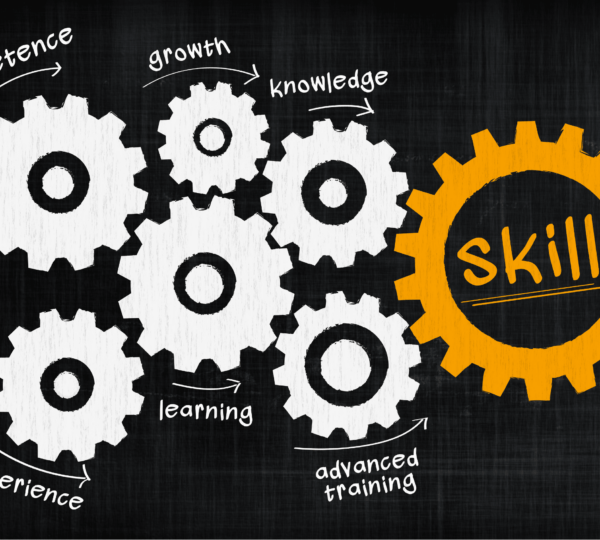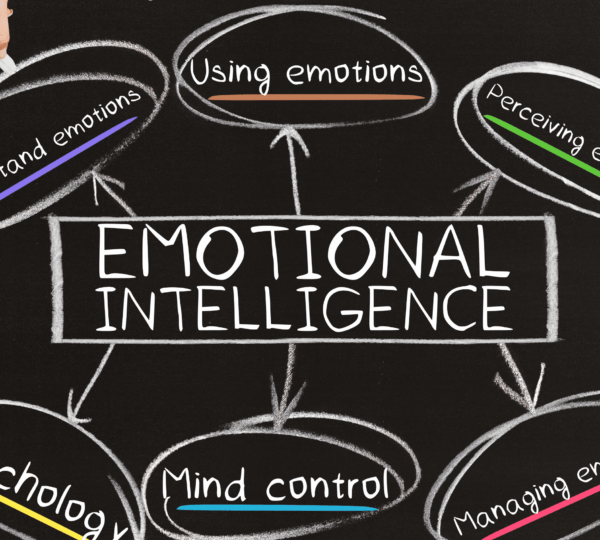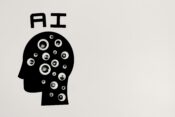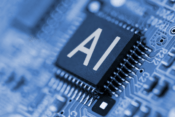
The Role of Soft Skills in Tech Jobs in 2025
One evening in spring, just after it had stopped raining, I decided to make a quick stop at the dry cleaners to pick up the dresses I had dropped off for alterations. While waiting for the attendant to retrieve my items, I noticed a young man ahead of me who seemed to be in a hurry. He was fumbling with his phone, speaking rapidly into it. He looked stressed, and I could tell he was agitated.
Just as he finished his call, the attendant greeted him with a warm smile and asked how his day was going. To my surprise, the young man immediately relaxed, responding with a chuckle about the chaos of his morning. The small exchange had a noticeable effect, he was calmer, and his energy shifted.
This little event got me thinking on how positive interaction had such an impact on his demeanor. Still pondering on it during the short walk home, I found myself linking it to the future of work, particularly in the tech industry. In the fast-paced, ever-evolving world of technology, hard skills will always be important, but it’s the soft skills—empathy, communication, adaptability—that will truly determine success in 2025 and beyond.
A recent study by LinkedIn’s Workplace Learning Report revealed that 89% of hiring managers consider strong soft skills essential for workplace success, especially in tech roles. As we approach 2025, the demand for these non-technical abilities is skyrocketing, making them just as critical as coding or data analysis.
What Are Soft Skills, and Why Do They Matter in Tech?
Soft skills refer to personal attributes that enhance interpersonal interactions and professional performance. Unlike technical skills, which involve specific job-related tasks, soft skills are universal and transferable across roles and industries.
The Evolving Role of Soft Skills in Tech
Traditionally, the tech industry has been associated with introverted, solitary individuals who are more comfortable with machines than people. However, this stereotype is rapidly changing. As technology becomes more integrated into every aspect of our lives, the need for tech professionals to collaborate, communicate effectively, and understand human behavior has increased.
Key Soft Skills in Tech Include:
- Communication: Clearly conveying ideas to technical and non-technical audiences.
- Teamwork: Collaborating effectively within cross-functional teams.
- Adaptability: Navigating fast-paced changes in tech.
- Problem-Solving: Thinking critically to address challenges.
- Emotional Intelligence: Understanding and managing your emotions and empathizing with others.
A report by Forbes highlights that as tech companies prioritize collaboration and user-centered design, soft skills are no longer optional but essential. Employers are increasingly seeking candidates who can bridge the gap between technical expertise and human connection.
The Growing Importance of Soft Skills in 2025
1. Communication: Speaking the Language of Tech and Beyond
Tech professionals often need to translate complex concepts into language that stakeholders, clients, or end-users can understand. In 2025, as companies emphasize customer-centric solutions, effective communication will remain pivotal.
Real-World Examples:
- Tech Leaders: Sundar Pichai (CEO of Google) is known for his ability to communicate technical concepts clearly and inspire teams.
- Development Teams: Agile methodologies, which rely on consistent communication, are now standard practice in tech projects.
Research published in the Harvard Business Review found that clear communication improves project success rates by 17%. For tech professionals, mastering this skill can lead to better collaboration, fewer misunderstandings, and increased productivity.
2. Teamwork: Thriving in Cross-Functional Environments
Tech jobs often require professionals to work alongside designers, marketers, and business analysts. Strong teamwork ensures seamless integration of ideas and expertise.
Key Practices:
- Active listening during team discussions.
- Respecting diverse perspectives within a project.
- Sharing responsibilities and credit for success.
A 2024 survey by Glassdoor found that companies with high team collaboration report a 21% increase in innovation. As hybrid work environments continue to dominate in 2025, the ability to work well with others—regardless of location—will remain indispensable.
3. Adaptability: Staying Agile in a Rapidly Evolving Industry
Tech is one of the fastest-changing industries, with innovations like quantum computing and AI constantly reshaping the landscape. Adaptability enables professionals to stay relevant amidst these shifts.
What It Looks Like:
- Quickly learning new programming languages or tools.
- Shifting strategies based on market demands.
- Embracing emerging technologies, such as Web3 or edge computing.
A study by McKinsey & Company projects that 70% of tech roles in 2025 will require employees to upskill or reskill every 2–3 years. Adaptability ensures professionals remain competitive and open to new opportunities.
4. Problem-Solving: Turning Challenges into Opportunities
Tech roles are inherently problem-solving-oriented, whether debugging code, optimizing systems, or designing user-friendly interfaces. Strong critical thinking can differentiate a good tech professional from a great one.
How to Hone This Skill:
- Practice structured thinking frameworks like Design Thinking.
- Analyze case studies of successful problem resolution in tech.
- Join hackathons or innovation challenges to sharpen your skills.
According to MIT Sloan Management Review, companies that prioritize employees with strong problem-solving abilities experience 31% higher project success rates. This skill will be non-negotiable in 2025.
5. Emotional Intelligence: The Secret Weapon in Tech Leadership
Emotional intelligence (EI) is increasingly recognized as a critical skill for leadership in tech. It involves self-awareness, empathy, and effective interpersonal management.
Why It’s Crucial:
- Understanding team dynamics improves morale and productivity.
- Empathy helps in designing user-centered products.
- Managing stress during tight deadlines fosters a healthier workplace culture.
In 2024, Psychology Today reported that leaders with high EI were 25% more effective in motivating their teams. As tech roles expand to include greater collaboration, EI will play a central role in fostering success.
How to Develop Soft Skills in 2025
- Seek Feedback: Regularly seek feedback from colleagues, managers, and clients to identify areas for improvement.
- Practice Active Listening: Pay attention to what others are saying, ask clarifying questions, and avoid interrupting.
- Develop Empathy: Put yourself in others’ shoes and try to understand their perspective.
- Join Professional Organizations: Networking with other professionals can help you learn new skills and expand your knowledge base.
- Take Courses and Workshops: Many online and in-person courses focus on developing soft skills like communication, leadership, and teamwork.
Tech blogs like TechCrunch and ZDNet often share insights into developing soft skills tailored for tech professionals, making them a valuable resource for self-improvement.
Conclusion
As we head into 2025, the role of soft skills in tech jobs is no longer secondary. These abilities complement technical expertise, enabling professionals to navigate complex challenges, collaborate effectively, and adapt to the industry’s rapid evolution.
Whether you’re an aspiring software engineer, a seasoned data scientist, or a budding tech leader, investing in your soft skills can elevate your career. Start by embracing small, actionable changes today to stay ahead in the competitive tech landscape of tomorrow.
References
- LinkedIn Workplace Learning Report (2023).
- Forbes: The Growing Demand for Soft Skills in Tech (2024).
- Harvard Business Review: Communication Skills for Workplace Success (2023).
- Glassdoor: Collaboration and Innovation in Hybrid Work (2024).
- McKinsey & Company: Future of Work in Tech Roles (2023).
- MIT Sloan Management Review: Critical Thinking in Tech (2023).
- Psychology Today: The Impact of Emotional Intelligence on Leadership (2024).
- TechCrunch and ZDNet: Soft Skills for Tech Professionals (2024).













